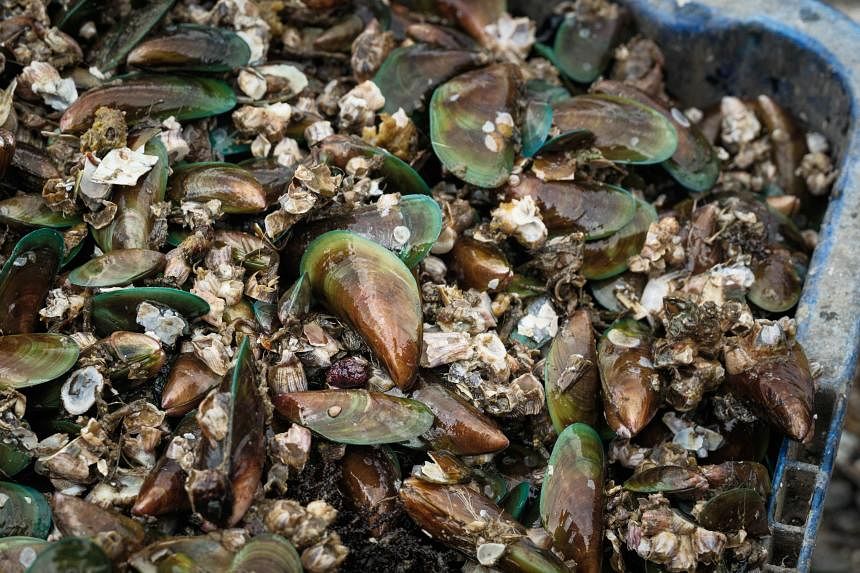PORT DICKSON – Mussels found in waters off the resort town of Port Dickson have been contaminated by dangerous biotoxins and are not safe for consumption, said Malaysia’s Fisheries Department.
The public has also been advised against eating mussels and other bivalves, such as lokan and lala, harvested in the town for three weeks till they are certified safe to eat.
Fisheries Department deputy director-general of management Wan Aznan Abdullah said tests carried out by the Fisheries Biosecurity Centre showed that the mussels harvested in the area have been contaminated by the Prorocentrum, Alexandrium and Pseudonitzschia algae species.
“However, the people are free to eat fish, squid, crabs and other marine produce,” he told reporters.
“Try not to consume the bivalves, including lokan, lala and mussels, for the next 20 days to be on the safe side.”
Mr Wan Aznan said preliminary findings revealed that the algae population has increased drastically due to the unusually hot weather.
“The prolonged hot weather helps the algae grow rapidly, causing the level of biotoxins to increase drastically as well,” he said.
Mr Wan Aznan said tests carried out by the department showed that bivalves farmed and fished in other states such as Melaka and Johor are safe to eat.
“Only the ones harvested in PD (Pon) are not safe to eat for now,” he said.
Asked if there was a possibility that the contamination was caused due to sea pollution, Mr Wan Aznan said there are no leads to suggest this.
He said this is the first time such cases have been reported in Port Dickson.
“Previously, there were cases of contamination in mussels in Penang and Sabah but that was caused by the high amount of lead found in them,” he said.
On April 2, eight cases of food poisoning, then believed to have been caused by eating mussels, were reported in the resort town.
Negeri Sembilan health director Harlina Abdul Rashid said two people were admitted to the intensive care unit of the district hospital after they experienced paralysis.
Five others were hospitalised and one person was given outpatient treatment.
She said the eight are from different families and had eaten mussels they bought from two markets in the district.
They began having headaches, numbness in the hands and feet, and muscle weakness.
Checks later showed that they bought the mussels in Pasir Panjang, where most of the breeders operate in the district.
Mr Wan Aznan said the department has ordered fishermen and farmers not to harvest bivalves from the sea for now.
“We have also instructed them to take back whatever stock is being sold in the market.
“Action can be taken against those who continue to do so,” he said.
Some 40 farmers are involved in the breeding of mussels in the district, but only 19 are registered with the department.
Mr Wan Aznan said the department will continue to carry out periodical tests and issue a statement once the bivalves harvested here qre safe to eat.
“We cannot say if the produce is safe to eat just by looking at it. We can only tell if they are safe to eat after we carry out a lab analysis,” he said.
State Fisheries director Kasim Tawe said based on latest information, only one person in his 70s remains in ICU.
“Four others are still in the normal ward, and they are expected to be discharged later today (April 4),” he added.
The Straits Times has contacted the Singapore Food Agency to check if any of Singapore’s mussels supplies come from Port Dickson. THE STAR/ASIA NEWS NETWORK

